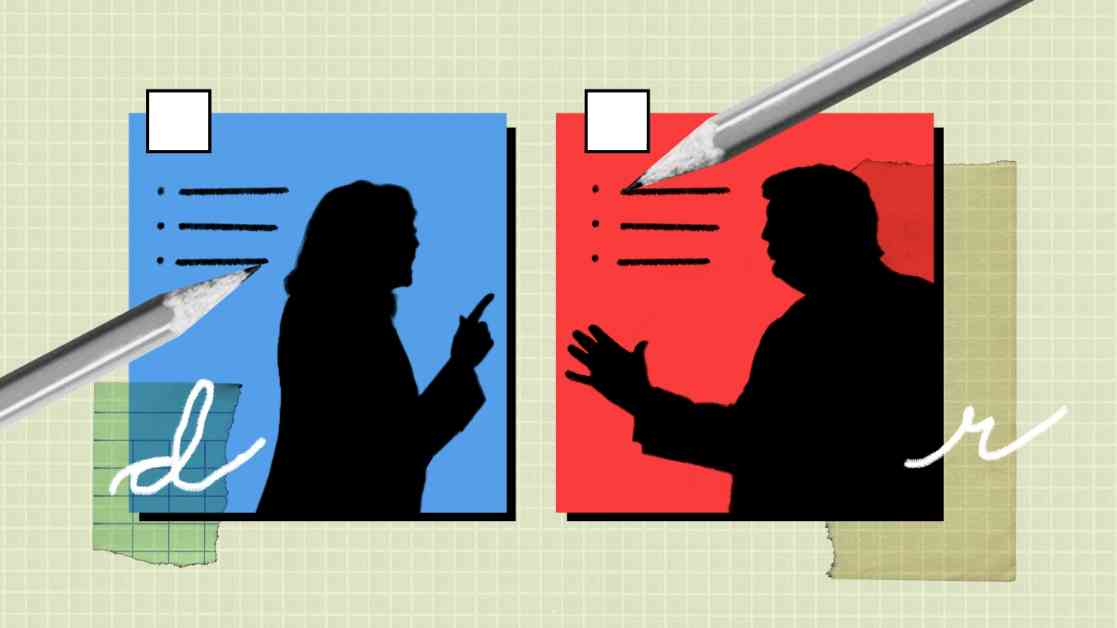Kamala Harris and Donald Trump, two prominent figures in American politics, have starkly different views when it comes to education policy. As they prepare to face off in a debate, it’s crucial to understand their standpoints on various aspects of education to make an informed decision.
On Department of Education
One of the key points of contention between Harris and Trump is the future of the U.S. Department of Education. Trump has expressed a desire to close the department, citing a belief that education should be primarily a state and local concern. In contrast, Harris has pledged to keep the department open, emphasizing the federal government’s role in funding public schools.
Trump’s stance on closing the Department of Education has raised concerns about the impact on essential funding streams, particularly for children with disabilities and those from low-income communities. Project 2025, a blueprint for the next Republican presidency, recommended turning these funding streams into grants with no strings attached and phasing out support for low-income students within a decade.
While the Trump campaign has distanced itself from Project 2025, the debate over the Department of Education goes beyond financial considerations. For Trump and many Republicans, the department represents government overreach, with a preference for local control of education. On the other hand, Harris and Democrats see the department as a mechanism to address inequities in education and hold districts accountable for serving marginalized students.
Despite Trump’s rhetoric about closing the Department of Education, the authority to do so lies with Congress. Previous attempts to dismantle the department have faced significant opposition, including from within the Republican party. Public opinion also reflects a sentiment that the government should increase, rather than decrease, funding for education.
On Sex-Based Discrimination (Title IX)
Another area of divergence between Harris and Trump is their approach to sex-based discrimination in schools, as outlined in Title IX. The Biden-Harris administration expanded protections against sex discrimination to include sexual orientation and gender identity, a move that Trump and many Republicans view as imposing liberal ideologies on schools.
The debate over Title IX regulations has deep roots, with the Obama administration advocating for inclusive policies that recognize gender identity, only to be reversed by the Trump administration. The current administration’s efforts to expand protections have faced legal challenges, with some states suing to block enforcement of the regulations.
Trump’s stance on Title IX aligns with his broader view of education as a local and parental responsibility, with a focus on limiting federal intervention in school policies. Harris, on the other hand, supports inclusive policies that protect the rights of LGBTQ+ students and promote a safe and supportive educational environment for all.
On School Choice
The concept of school choice is another area where Harris and Trump diverge significantly. Trump advocates for universal school choice, which would empower parents to direct public funding towards the school of their choice, whether public, private, or homeschooling. This vision of parental control extends to hiring and firing school principals, with the goal of enhancing local autonomy in education.
In contrast, Democrats, including Harris, oppose efforts that could weaken public schools, such as private school vouchers and tuition tax credits. The emphasis is on safeguarding public education and ensuring that all students have access to quality schooling, regardless of their background or circumstances.
Trump’s proposals around school choice raise questions about the feasibility of implementing such policies at the federal level, given the limitations on government influence in state and school district affairs. Harris’ focus on public education and support for teachers underscores a commitment to strengthening the public school system and addressing inequities in access to quality education.
In conclusion, the education policy standpoints of Kamala Harris and Donald Trump reflect broader ideological differences about the role of government in education, the balance between federal and local control, and the importance of equity and inclusion in schools. As voters evaluate these candidates, understanding their positions on education is essential in shaping the future of the American education system.



